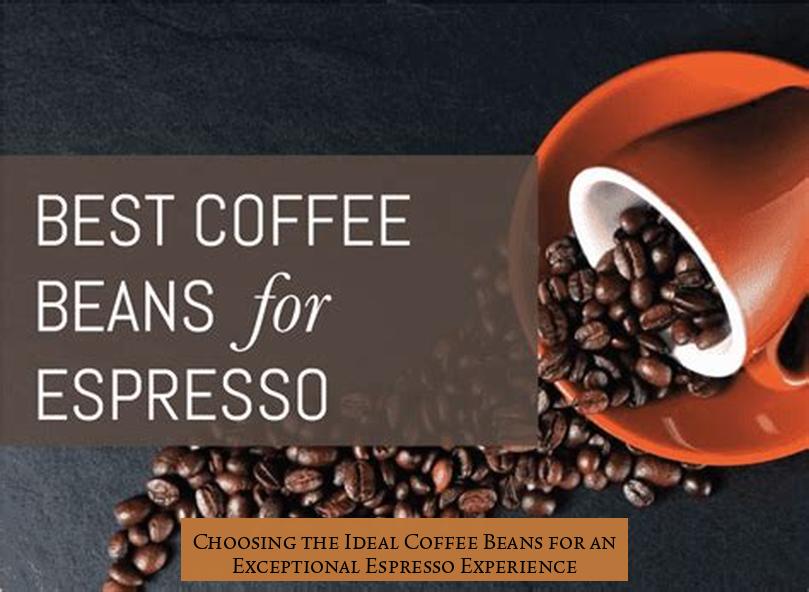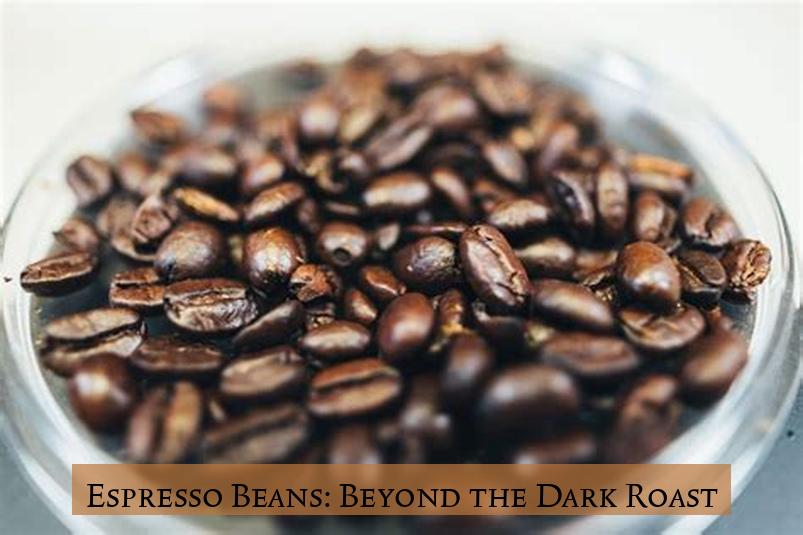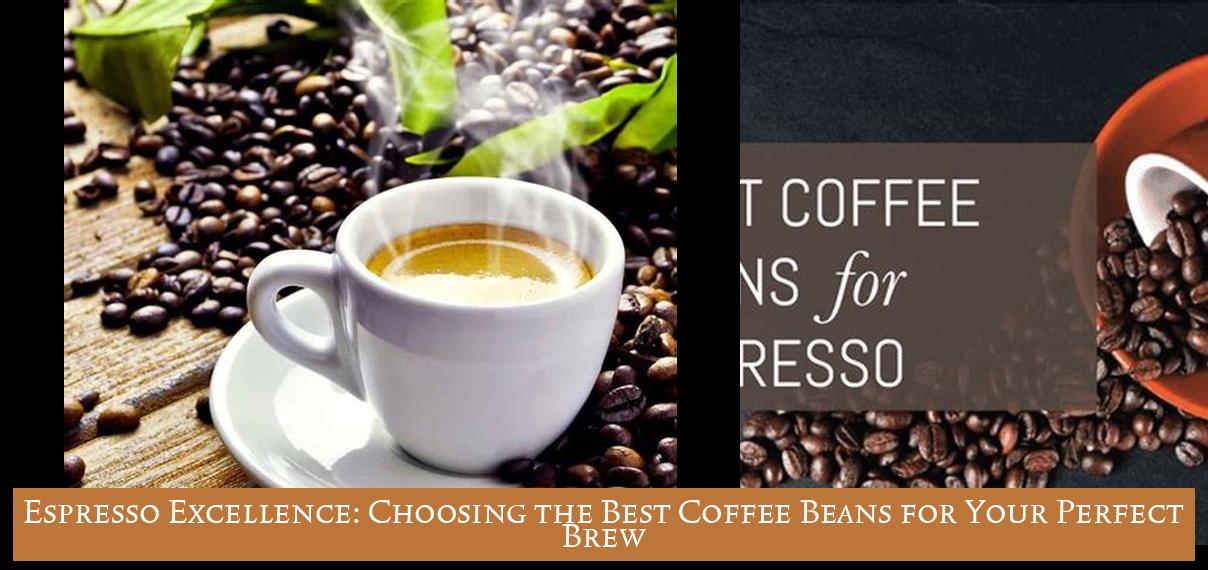Unlocking the perfect espresso experience begins with one essential question: which coffee beans are best for espresso? Whether you’re a dedicated espresso enthusiast or a casual coffee connoisseur, this age-old query holds the key to unlocking the ultimate caffeinated delight. Join us on a flavorful journey as we explore the nuances of dark roasts, the secrets of fine grind, and the art of blending for espresso excellence. Get ready to savor every sip as we uncover the secrets behind the perfect espresso brew.
Key Takeaways
- Espresso beans are the best coffee beans for making espresso due to their ability to deliver the uniformity, body, and flavor expected in a shot of espresso.
- Dark roasted coffee is preferred for espresso due to its stronger flavor, and it is sometimes labeled as “espresso” due to its darker roast.
- Espresso requires a fine grind to slow down the incoming water while allowing it to flow evenly, typically a grind slightly finer than granulated sugar.
- Any coffee bean can be used for espresso as long as it is finely ground, as the only requirement for espresso is that it was brewed using an espresso machine.
- Espresso is best when made with freshly roasted beans, ideally between 7-21 days off roast to achieve the desired crema.
- For a great, reliable espresso, a solid medium roasted coffee is recommended as it offers a balanced flavor profile.
Choosing the Ideal Coffee Beans for an Exceptional Espresso Experience

Coffee lovers, rejoice! Embark on a journey to discover the secrets of selecting the perfect coffee beans for an espresso that will tantalize your taste buds. Whether you’re a seasoned barista or a home brewing enthusiast, this comprehensive guide will equip you with the knowledge to elevate your espresso game to new heights.
Dark Roasts: The Espresso Connoisseur’s Choice
Espresso beans are specially crafted to deliver the rich, full-bodied flavor and velvety crema that define this beloved beverage. Dark roasted beans reign supreme in the espresso realm, owing to their robust and intense characteristics. The extended roasting process caramelizes the beans’ natural sugars, resulting in a pronounced flavor profile that stands up to the high pressure and rapid extraction of espresso brewing.
If you seek a bold and assertive espresso, dark roasted beans are your ideal companions. Their deep, smoky notes and lingering finish will leave you craving more. Many roasters even label their dark roasted beans specifically as “espresso” to guide your choice.
Espresso Beans: Beyond the Dark Roast

While dark roasts dominate the espresso scene, it’s important to note that any coffee bean can be used for espresso as long as it is finely ground. The unique brewing method of espresso, with its pressurized hot water extraction, is what truly sets it apart.
If you prefer a lighter, more nuanced espresso, consider experimenting with medium roasted beans. Medium roasts strike a harmonious balance between the bean’s inherent flavors and the development of caramelized notes, offering a well-rounded and approachable espresso experience.
Fine Grind: The Espresso’s Secret Weapon
The grind size plays a crucial role in achieving the perfect espresso extraction. Espresso requires a fine grind, slightly finer than granulated sugar. This fine grind creates a greater surface area for the hot water to interact with, resulting in a slower extraction and a richer, more flavorful espresso.
Remember, the grind size should be consistent to ensure an even extraction throughout the puck of coffee grounds. Too coarse a grind will result in a weak and watery espresso, while too fine a grind will lead to a bitter and over-extracted brew.
The Art of Freshness: Beans that Sing
Freshly roasted beans are the lifeblood of an exceptional espresso. Aim to use beans that are 7-21 days off roast, as this period allows for the optimal development of flavor and aroma while preserving the bean’s natural sweetness.
Stale beans, on the other hand, will produce a lackluster and underwhelming espresso. The longer beans are exposed to air and light, the more their flavor compounds degrade, resulting in a dull and lifeless cup.
A Symphony of Flavors: Blending for Excellence
For those seeking a truly customized espresso experience, blending different coffee origins and roasts can open up a world of possibilities. Experiment with combining light and dark roasts to create a unique flavor profile that suits your palate.
Blending can also enhance certain flavor notes. For instance, adding a small percentage of a fruity coffee to a darker roast can introduce a vibrant acidity that complements the roast’s inherent sweetness.
Conclusion: The Quest for Espresso Perfection
Choosing the perfect coffee beans for espresso is an art form that requires experimentation and a discerning palate. By understanding the nuances of roast levels, grind size, and freshness, you can unlock the full potential of your espresso machine and create a symphony of flavors that will delight your senses.
Remember, the journey to espresso perfection is an ongoing one. Continue exploring different beans, roasts, and brewing techniques to refine your skills and uncover the endless possibilities of this beloved beverage.
What type of coffee is best for espresso?
All coffee can be used for an espresso machine, provided it has the right fine grind. Many prefer to use dark roasted coffee due to its stronger flavor, and it is sometimes labeled ‘espresso’ due to its darker roast.
What type of beans are best for espresso?
Espresso beans are the best coffee beans for making espresso, as they deliver the uniformity, body, and flavor expected in a shot of espresso. Ordinary coffee beans are typically roasted lighter, retaining the full flavor of the beans.
What coffee grind is best for espresso?
Espresso requires a fine grind to slow down the incoming water while allowing it to flow evenly. For espresso and Moka pots, a fine grind slightly finer than granulated sugar is recommended.
Do any coffee beans work for espresso?
Any coffee bean can be used for espresso as long as it is finely ground. The only requirement for espresso is that it was brewed using an espresso machine.
Why is freshly roasted coffee best for espresso?
Espresso is best when made with freshly roasted beans, ideally between 7-21 days off roast to achieve the desired crema. Freshly roasted beans contribute to the creamy texture and flavor of the espresso.
What type of roast is recommended for a reliable espresso?
For a great, reliable espresso, a solid medium roasted coffee is recommended as it offers a balanced flavor profile, providing a satisfying espresso experience.

